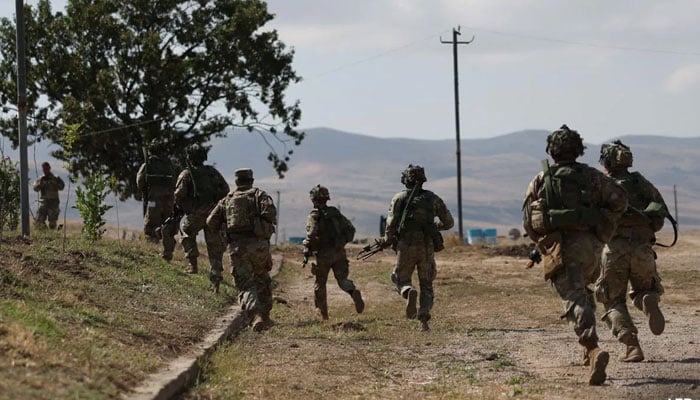A precarious ceasefire now hangs over Nagorno-Karabakh as Armenian separatists yielded to Azerbaijan’s rapid offensive.
The two conflicting parties engaged in their inaugural direct peace talks on Thursday, following Azerbaijan’s assertion of control over the contested region.
As part of a ceasefire mediated by Russia, separatist forces disarmed on Wednesday, halting Azerbaijan’s 24-hour offensive to reclaim the pivotal territory. The two-hour meeting, facilitated by Russian peacekeepers, transpired in an atmosphere described as “constructive and peaceful” by Azerbaijan’s presidency. Both sides expressed their willingness for further negotiations.
While the talks unfolded, sporadic gunfire echoed in the separatist stronghold of Stepanakert, despite the agreed truce. Azerbaijan refuted allegations of ceasefire breaches, whereas the breakaway authorities accused Baku of violating the agreement. Russia’s defence ministry reported “five ceasefire violations” in Shusha and Mardakert.
Hours later, the foreign ministers of Armenia and Azerbaijan confronted each other during an emergency UN Security Council meeting.
According to separatist reports, the crisis has led to approximately 200 casualties. Armenian Foreign Minister Ararat Mirzoyan said, “There are no longer sides in the conflict, only perpetrators and victims. The conflict has evolved into a genuine danger of atrocities.” His Azerbaijani counterpart, Jeyhun Bayramov, accused Armenia of disseminating disinformation.
The demise of separatist resistance marks a significant triumph for Azerbaijan’s President Ilham Aliyev, who proclaimed the restoration of sovereignty over the region. Armenia’s Prime Minister, Nikol Pashinyan, reassured that the ceasefire was generally holding and did not perceive a “direct threat” to civilians.
Recent events have evoked jubilation among Azerbaijanis, but in Armenia, pressure on Pashinyan has surged due to concessions made to Azerbaijan. Thousands of protesters congregated outside his offices in Yerevan, expressing apprehension for the fate of Karabakh’s Armenian population.
Despite the formidable challenges ahead, Pashinyan underscored the necessity of pursuing peace with Armenia’s arch-rival. Acknowledging the difficulties, he affirmed, “This path is not easy, and it traverses internal and external shocks, but we must persevere.”
In recent history, Armenia and Azerbaijan have waged two wars over Nagorno-Karabakh, resulting in tens of thousands of casualties and the displacement of hundreds of thousands.
The ongoing situation raises concerns of a potential refugee crisis as Karabakh’s Armenian population fears displacement.



Comments are closed.